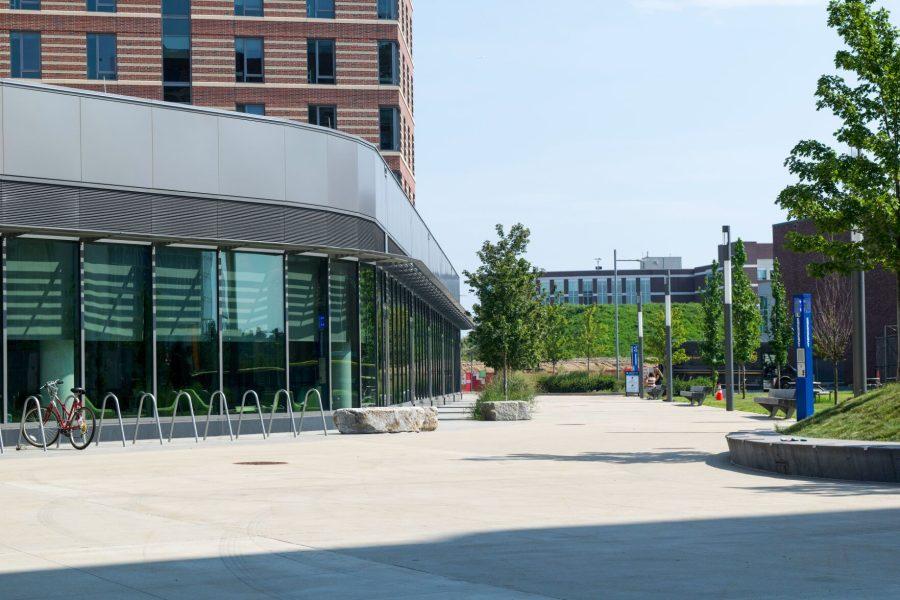As the fall 2021 semester begins, UMass Boston is in the process of launching Aira, a visual interpreting app for people who are blind or have low vision. When using Aira, a professional agent looks through a user’s smartphone camera at their surroundings, and helps to guide them through campus.
Aira is designed to help users in various ways. The app aids students, faculty, and staff to order food, navigate new pathways on campus, read signs and bulletin boards, avoid construction areas, manage online materials, and more.
“It really is like having a friend in your pocket who can help you in different situations,” explained Michael Lyons from the IT department.
Lyons serves as the Assistant Vice Chancellor of Client Services, and worked alongside Matt McCubbin, the IT Accessibility Coordinator, as a driving force in implementing the service.
Recently, Aira has been able to aid individuals who are blind or have low vision navigate a pandemic-era world. Aira’s agents can help users with reading COVID-related signage, which are often temporary and, therefore, not written in braille.
UMass Boston staff have worked to customize Aira to fit the needs of the campus community. The geofence, or the boundaries in which the app works, extend not only across campus, but also to many of its surrounding areas.
The geofence covers inside and outside of the main campus buildings, parking lots, walking paths (including the walking path at Harbor Point), the Bayside building, the Residence Halls, athletic fields, the JFK Presidential Library, the Edward M. Kennedy Institute, the State Archives building, and the Peninsula and Harbor Point apartments.
UMass Boston also took into account how students, staff and faculty will be accessing campus on a daily basis. Aira can be used at all of the campus shuttle bus stops, and extends along the entire bus route. Though it is not up and running yet, members of the IT staff disclosed in an interview that they are working to add a site for Aira at the JFK/UMass MBTA station.
The geofence has also been extended to include UMass Boston’s partner schools and its external campus locations. Aira covers all of Mass Bay Community College’s and Cape Cod Community College’s campus locations, as well as the UMass Boston Nantucket Field Station and the University of Massachusetts Center at Beacon Hill.
Introducing Aira as a service on campus has been a long time in the making. The product was demonstrated in 2018 to staff in Human Resources and in IT, as well as to accessibility stakeholders on campus. According to IT staff, Ray Lefebvre—Vice Chancellor of Information Technology and Chief Information Officer at UMass Boston—has given attention to the need for accessibility-related technology on campus since his hiring at the university in 2019.
Lyons believes Aira to be necessary to a community that has been underserved, and also functional as a tool which can extend beyond its original target users.
“If we take something like a document and make it so that it goes to speech to text, not only does that help somebody who might have a vision issue, but it also means that someone who’s driving in for classes can listen to their class notes,” said Lyons.
Per Lyons, in addition to providing Aira on-campus, the university will be rolling out Aira accounts to community members that can be used anywhere—not just within the bounds of the geofence. The aim of these named accounts is to aid staff, faculty, and students who may benefit from such an account, especially if they are learning and working remotely. Accounts of this level will be distributed directly through the Ross Center for Disability Services.
For more information regarding Aira and how to access it, visit https://www.umb.edu/it/aira.

